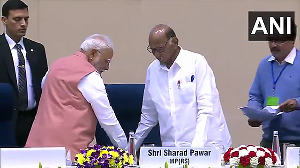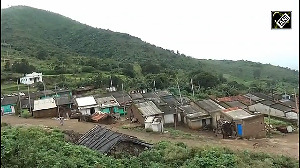
Former Delhi Police Commissioner Neeraj Kumar, who led a team that probed the 2012 Delhi gang rape, said on Friday his forces solved the case within 72 hours, despite the lack of initial leads.
The Supreme Court, in its judgment on Friday upholding the conviction of four men who raped and killed a 23-year-old physiotherapy intern, appreciated the investigation conducted by the Delhi Police.
“I am very happy that the court, at every level, has appreciated our investigation. But people should also realise how difficult the case was. Nobody is talking about the police’s role and how the case was investigated well,” Kumar said.
He recalled how a team from Delhi arrested one of the four men from a Naxalite-dominated area in Bihar, and another from the interiors of Rajasthan.
The police, he stressed, ended up cracking the case in 72 hours, and filed a chargesheet within 10 days.
“But there were no clues to begin with, and no witnesses,” he said.
The police had no details about the vehicle in which the victim was raped on December 16, 2012. But they soon found that the victim and her male partner had been assaulted in a moving bus.
They got their first break when they checked the CCTV footage from the area in south Delhi where the two had been dumped.
“We got the CCTV footage, interpreted it and then overnight we located the bus and then its driver and interrogated him. By the next afternoon, we had Ram Singh confessing that he had been driving the bus,” he recalled.
Singh, who was subsequently jailed, allegedly committed suicide in his cell in Tihar in March 2013.
What made matters more difficult for the police was the mounting public and media outrage over the crime, and the demand for quick results.
“Political bosses were baying for the blood of all the officers working on the case,” he said.
But one clue led to another, and the police soon zeroed in on another of the accused, Akshay Thakur, picking him up from the troubled region of Aurangabad in Bihar.
“The local police refused to give us help. But our team went to Aurangabad and arrested Thakur,” he said.
Another accused, who had fled to Rajasthan, was also arrested.
“The juvenile involved in the crime was apprehended from Delhi’s Anand Vihar bus terminal by our team,” he said.
The police had been told by the juvenile’s co-accused that he had a particular way of hailing passengers.
“He had started working as a bus conductor and was apprehended on the basis of this clue,” the officer recalled.
After the arrests, the police focused on filing a chargesheet, which took 10 days.
“I took care of the chargesheet, plugging all the loopholes,” he said.
Kumar stressed that he took ‘all the brickbats’ and ensured that his officers did not face public anger that grew as more and more gory details about the crime were exposed.
“I faced the media outrage and the public wrath. I succeeded in shielding my officers. I told them, ‘I will face the brunt of the media trial and all the criticism. You people carry on’,” he said.
The police’s job didn’t end with filing the chargesheet; they had to also build up a strong case for prosecution.
Evidence was gathered from Singapore, as doctors who treated her there were examined over video conferencing.
Almost five years later, the police’s work had been upheld by the apex court.
“We welcome the verdict,” Kumar said.
“As a father of two daughters, I was very upset when this incident happened. Today I feel very happy,” he said.
The paramedic student, who was assaulted and raped by six people in the moving bus, died in a Singapore hospital on December 29, 2012.











 © 2025
© 2025